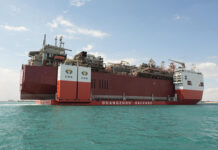
Independent research and consultancy organisation CE Delft believes the global shipping industry can reduce emissions by nearly 50% by the end of the decade, according to its new study.
These findings come as the International Maritime Organisation (IMO) is about to reach an agreement on climate targets to reduce greenhouse gas emissions from ships in July.
More specifically, civil society groups call on the IMO’s 175 member states to urgently support halving shipping emissions by 2030 and reaching zero by 2040 to put the industry on the zero-emission pathway required for achieving the 1.5°C temperature warming limit agreed on the Paris Agreement.
Additionally, according to CE Delft, the analysis shows that ships can achieve 36-47% emissions reduction by 2030 compared to 2008 levels by deploying 5-10% zero or near-zero emission fuels, wind-assist technologies, and by ‘climate optimising’ the speed of vessels.
The study also shows that costs associated with these emission cuts would be manageable. In particular, halving emissions in this decade would only add around 10% to the total cost of shipping operations, a sum that would be dwarfed by the cost of climate related damages to the industry and wider society if shipping fails to cut emissions.
According to University College London, every year of inaction this decade will add an extra US$100 billion to the cost of shipping decarbonisation.
Delaine McCullough from Ocean Conservancy, commented, “Countries and shipping companies have raised real concerns about the technological and economic feasibility of achieving the 1.5°C-aligned goal of halving emissions by 2030. This analysis clearly shows that these reductions are possible and that costs are not a barrier.”





